Le Bureau de le Resistance has needed to take its operations underground.
The Stream will experience a hiatus of unknown duration.
Respect to all agents of the liberation.
Stay tuned & Peace Out.
Le Bureau de le Resistance has needed to take its operations underground.
The Stream will experience a hiatus of unknown duration.
Respect to all agents of the liberation.
Stay tuned & Peace Out.
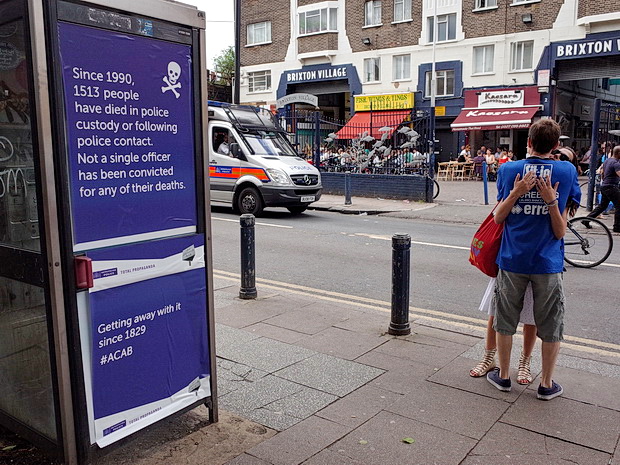 The London Metropolitan Police spends millions of pounds a year delivering its PR message to Londoners with, of course, a certain spin on the content. A team of unknown interventionists felt the Met’s communication was lacking factual balance and have been offering alternative perspectives… Read Mike Urban’s report and see more pictures >>
The London Metropolitan Police spends millions of pounds a year delivering its PR message to Londoners with, of course, a certain spin on the content. A team of unknown interventionists felt the Met’s communication was lacking factual balance and have been offering alternative perspectives… Read Mike Urban’s report and see more pictures >>
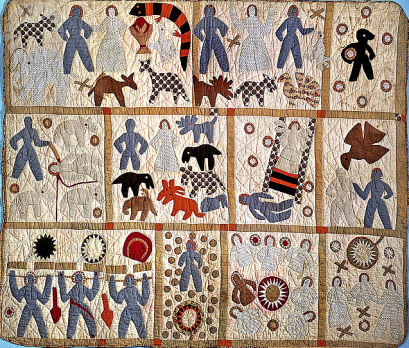
The notion of ‘biocultural rights’ goes beyond individual rights and private property to explicitly recognize a community’s identity, culture, governance system, spirituality and way of life as embedded in a specific landscape. It represents a bold new departure in human rights law that recognizes the importance of a community’s stewardship over lands and waters. The emerging movement for biocultural rights is woven from four main strands:
.
Read David Bollier’s short article “The Rise of Biocultural Rights” and dig deeper with the longer and more detailed proposal by Kabir Sanjay Bavikatte and Tom Bennett, Community Stewardship: the foundation of biocultural rights
Illustration (quilt) by Harriet Powers
The people of the United Kingdom today have the opportunity to vote for their next government. Some have suggested this election has precipitated further descent into apathy and cynicism and will confirm the end of the long-standing British two-party system of representative democracy.
A few postcards from beyond the polling booths…
George Monbiot makes a sharp critique of the political situation in Britain, arguing that the serious issues which really need addressing seem to be subject to a code of silence by most of the parties, in a kind of unspoken systemic complicity.
Photographer Denise Felkin went to meet some of the human beings behind the statistic that over a third of the registered electorate don’t vote. Her portrait series “I’m not voting because…” explores the social and political context for high abstention.
Attempting to mobilise these silent masses, the Vote or Vote None campaign encourages people to use their ballot paper to state that none of the candidates meet their approval. arguing that that this is the route to galvanising and renewing the political system.
A more tactile approach is taken by Samantha Moyo who urges all parties to Turn Up and Hold Hands – asking “Which politician is using the word love? Which politician is spending time in non-formal attire with the communities they wish to represent? Which politician is owning up to their mistakes?”
Meanwhile, Rupert Murdoch’s media minions appropriate the spirit of Marvin Gaye and Cassetteboy to jump on the election hype bandwagon… (to good effect, although we wouldn’t recommend believing; click play to view)
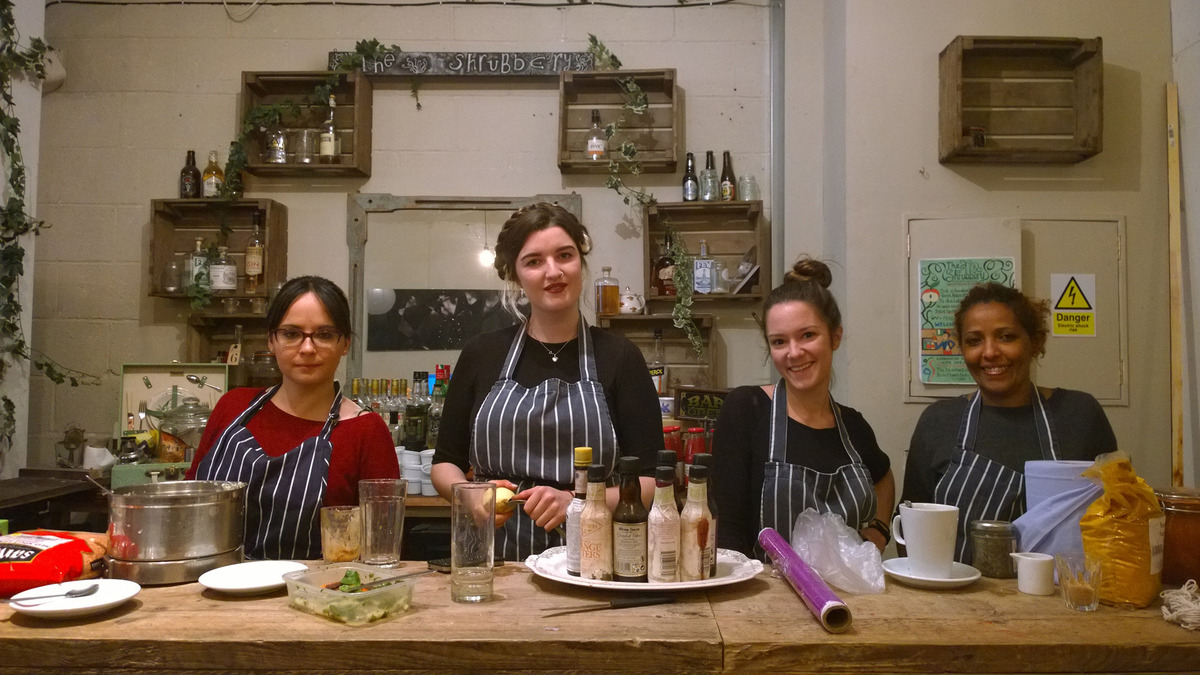 “Food is very powerful in terms of social change, because it has that ability to bring people together. It’s something that transcends all barriers — the universal language.” Nikandre Kopcke is the founder of a London-based pop-up restaurant collectively run by women from migrant and refugee communities.
“Food is very powerful in terms of social change, because it has that ability to bring people together. It’s something that transcends all barriers — the universal language.” Nikandre Kopcke is the founder of a London-based pop-up restaurant collectively run by women from migrant and refugee communities.
Mazí Mas has six women – all mothers – from six different countries currently working as part-time chefs while other women participate in a weekly training program, supporting them to adapt their skills to the restaurant industry while reducing their vulnerability to exploitation and their dependence on male partners.
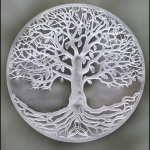 “The people who are ditching their Kindles and savoring books as physical objects, brewing their own beer and resurrecting other old arts and crafts, reformatting their lives in the modes of a past decade, or spending their spare time reconnecting with the customs and technologies of an earlier time — these people aren’t doing any of those things out of some passion for self-denial. They’re doing them because these things bring them delights that the shoddy mass-produced lifestyles of the consumer economy can’t match.”
“The people who are ditching their Kindles and savoring books as physical objects, brewing their own beer and resurrecting other old arts and crafts, reformatting their lives in the modes of a past decade, or spending their spare time reconnecting with the customs and technologies of an earlier time — these people aren’t doing any of those things out of some passion for self-denial. They’re doing them because these things bring them delights that the shoddy mass-produced lifestyles of the consumer economy can’t match.”
For John Michael Greer, blogger, commentator on the disintegration of civilisation and Grand Archdruid of the Ancient Order of Druids in America, the way forward is not a ‘Butlerian jihad’ (a reference to the revolt against technology in Frank Herbert’s Dune) – but a Butlerian Carnival.
He argues we need a sensuous celebration of the living world, outside the cubicle farms and the glass screens, drawing raw materials from eras, technologies, and customs of the past which don’t require the extravagant energy and resource inputs that the modern consumer economy demands. Such a carnival way of life will be better suited to a future defined by scarce energy and resources… Read his full essay here >>>
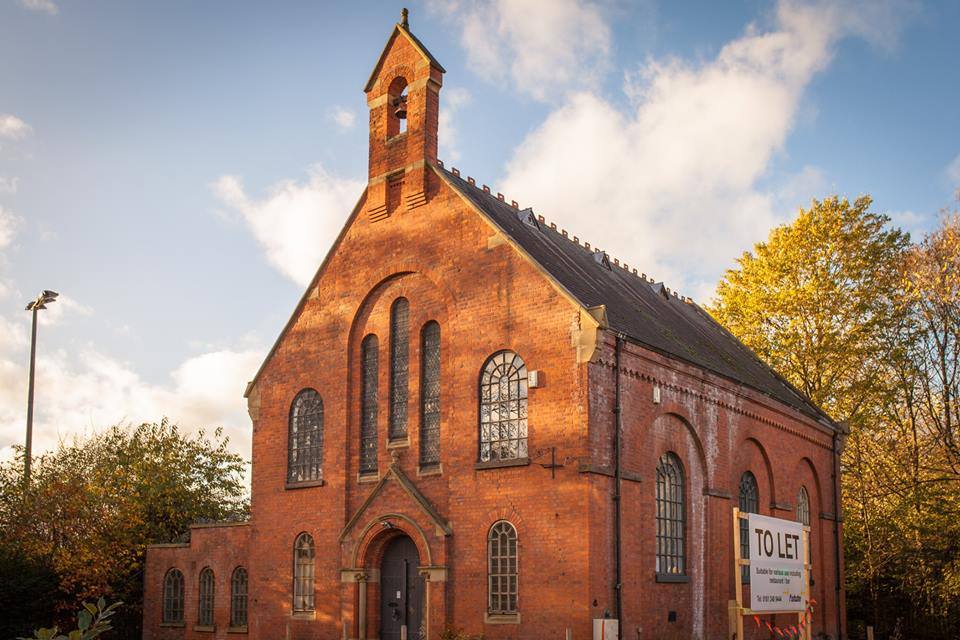 Squatting is now illegal in the UK, as is ‘skipping’ (salvaging waste food to feed oneself or others) But the Free Milk collective spent several months using both practices to set-up and host an autonomous community space. Their intention: to feed and support homeless people and to bring awareness to the absurd fact that the number of empty houses in the UK (over half a million) significantly exceeds the number of homeless people…
Squatting is now illegal in the UK, as is ‘skipping’ (salvaging waste food to feed oneself or others) But the Free Milk collective spent several months using both practices to set-up and host an autonomous community space. Their intention: to feed and support homeless people and to bring awareness to the absurd fact that the number of empty houses in the UK (over half a million) significantly exceeds the number of homeless people…
Read the report here >>
[Dispatch posted by the Bureau for Agent G in the field]
It took several years for the issue of global climate change to translate from fringe environmentalist concern into collective mainstream consciousness. But the shift from knowledge to effective response has so far been tentative and often abortive, despite a steady diet of worrying data and horrifying projections from climate scientists. This sobering map shows the projected impact of tipping-point effects on cities around the globe (read more here)
The scale of the problem, the well co-ordinated obstruction by vested interests (the pseudo-scientific climate-change denial movement seems to be funded in various ways by the right-wing business lobby) – and the overwhelming difficulty of responding collectively to a global issue all throw up question marks as to whether humanity can rise to the challenge.
Another wave of movement is needed – and may be emerging. This article suggests some in influential positions are putting their energies into the climate change response.
Read more >>
.
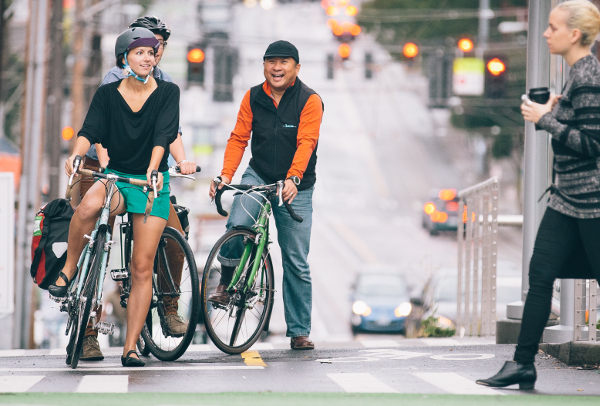 Tensions are escalating. How do we begin to see each other as people, rather than belonging to separate, dehumanized tribes?
Tensions are escalating. How do we begin to see each other as people, rather than belonging to separate, dehumanized tribes?
In one microcosm of this global process, a change in language led to a peace between cyclists and motorists in Seattle and, eventually, to a change in policy.
Read this report from Michael Andersen >>
.
In the small but politically important American state of New Hampshire, hundreds gathered on a wintry day, many at the end of a 150mile long, 11-day march across the state in freezing temperatures. This movement, led by the reformer and law academic Lawrence Lessig, sees itself as one of the front lines in the battle against the continuing corporatization of our world. At the rally in front of the State House in Concord, NH, 15 year old Ella McGrail delivers this rousing and impressive speech for the reclamation of democracy.
[Dispatch posted by the Bureau for Agent Aa in the field]
.
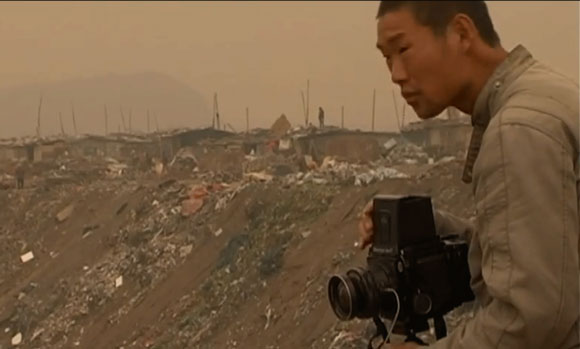 Making documentary films in China is not an easy path. Film is subject to tight state censorship and little that is in any way critical of the status quo gets made, never mind disseminated. Recently however, environmental docs seem to be making it through the censors’ filtering system, perhaps because the authorities are starting to recognise China’s worsening pollution problems and attempting, at times, to address the issue.
Making documentary films in China is not an easy path. Film is subject to tight state censorship and little that is in any way critical of the status quo gets made, never mind disseminated. Recently however, environmental docs seem to be making it through the censors’ filtering system, perhaps because the authorities are starting to recognise China’s worsening pollution problems and attempting, at times, to address the issue.
Wang Jiuliang’s film Beijing Beseiged by Waste is one such example. Read more here about Jiuliang’s fight against pollution. >>
Photographer unknown
.
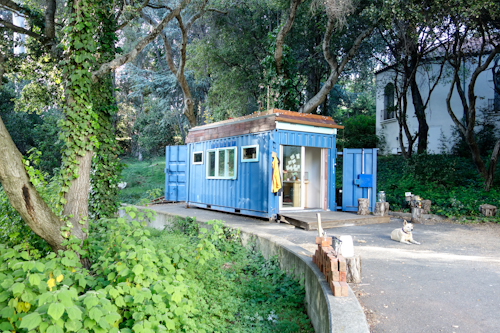 In Oakland, California, container homes are banned as urban blight. But what if they were made into art? Sarah Beckstrom created this house last year attempting to demonstrate how a search for alternative styles of urban living can mix utility, efficiency and art.
In Oakland, California, container homes are banned as urban blight. But what if they were made into art? Sarah Beckstrom created this house last year attempting to demonstrate how a search for alternative styles of urban living can mix utility, efficiency and art.[Dispatch posted by the Bureau for Agent A in the field]
.
 The intriguingly-titled Institute for Precarious Consciousness offers a succinct resumé of the evolution of Capitalism’s ‘dominant affects’ and the corresponding changing responses by resistance movements. The Institute’s proposed tactical 1-2-3 for responding to the current affect of all-pervading anxiety seems helpful… Read more >>
The intriguingly-titled Institute for Precarious Consciousness offers a succinct resumé of the evolution of Capitalism’s ‘dominant affects’ and the corresponding changing responses by resistance movements. The Institute’s proposed tactical 1-2-3 for responding to the current affect of all-pervading anxiety seems helpful… Read more >>
[Photographer unknown.]
[Dispatch posted by the Bureau for Agent Penfold in the field.]
 “Rather than finding ourselves in an era of unprecedented change, we may find it is one of crushing tedium, uniformity and vacuous conformism.” writes Richard Martin as he looks back at true revolutionary periods from artistic, political or corporate perspectives. “People really should stop talking about talking…” he adds.
“Rather than finding ourselves in an era of unprecedented change, we may find it is one of crushing tedium, uniformity and vacuous conformism.” writes Richard Martin as he looks back at true revolutionary periods from artistic, political or corporate perspectives. “People really should stop talking about talking…” he adds.
His proposal for starting the slow change processes that may produce a rich harvest many years hence: “Play them at their own game… accepting a role alongside them and operating as an outsider on the inside.” Read more here >>>
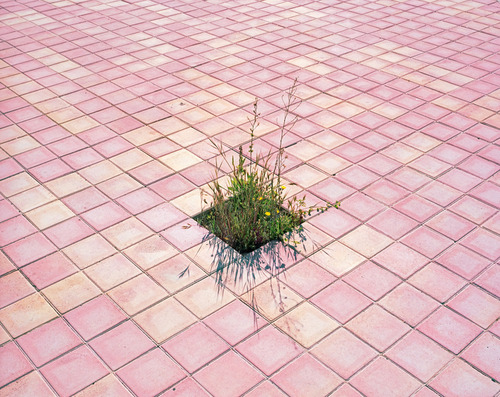 “After the Fall” – Photographs by Hin Chua.
“After the Fall” – Photographs by Hin Chua.
View here >>
.
 KKK, Sony, Xbox… Hacking has never been so “en vogue”, whether the motivation is political, criminal, exposing the system – or “just for the LULZ.” But hacktivism and codebreaking are of course not new, having been around since the very technologies they use…
KKK, Sony, Xbox… Hacking has never been so “en vogue”, whether the motivation is political, criminal, exposing the system – or “just for the LULZ.” But hacktivism and codebreaking are of course not new, having been around since the very technologies they use…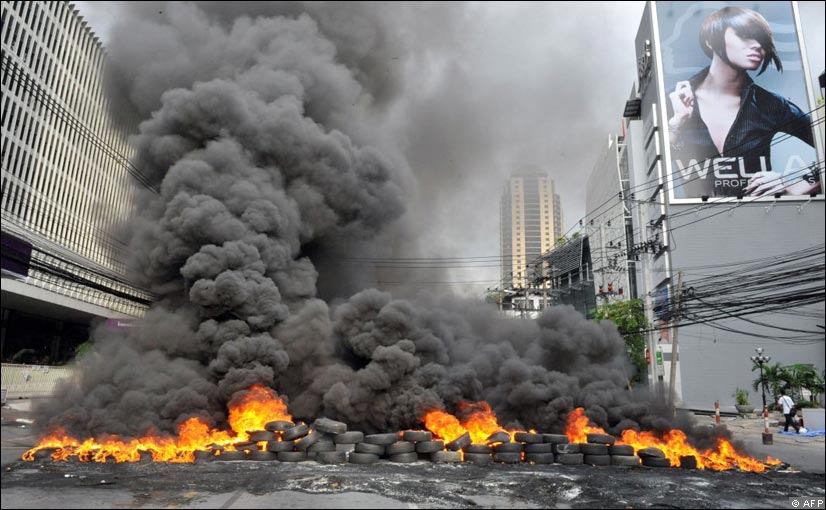 Fire is perhaps the most visual and emotive symbol of protest and resistance movements…
Fire is perhaps the most visual and emotive symbol of protest and resistance movements…
Jarret Martineau explores the role of anger in Indigenous and Black struggles for freedom in the U.S, suggesting that in the post-colonial historical context, collective expression of rage and resentment is a necessary precursor as well as fuel for liberation. Jarret Martineau is a Cree/Dene doctoral candidate in Indigenous Governance at the University of Victoria and this essay is inspired by Frantz Fanon’s Black Skin, White Masks and Sean Coulthard’s Red Skin White Masks. Read the essay here >>
Meanwhile, on the ground, read this post by Zig Zag on anti-fracking actions by Mi’kmaq activists, who have been using burning tyres to blockade vehicles engaged in shale gas exploration. Zig Zag, aka Gord Hill, is a writer and activist from the Kwakwaka’wakw nation.
Photograph from Red Shirts protest in Bangkok featured in Warrior Publications blog; AFP photographer unknown.
.
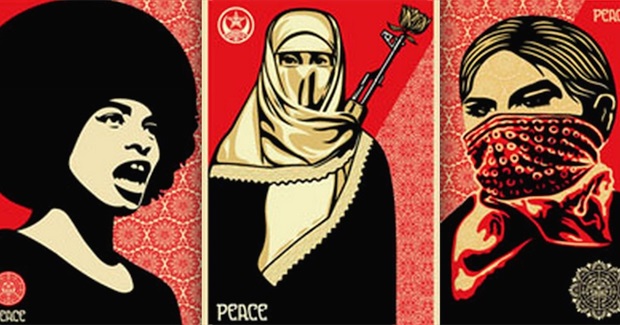 As in most areas of history, the contribution of female activists and revolutionaries has often been ignored; it is mostly men who have become famous as the leaders of resistance and revolutionary movements. This article by Kathleen pays tribute to ten women “who you probably won’t ever see plastered across a student’s college T-shirt.”
As in most areas of history, the contribution of female activists and revolutionaries has often been ignored; it is mostly men who have become famous as the leaders of resistance and revolutionary movements. This article by Kathleen pays tribute to ten women “who you probably won’t ever see plastered across a student’s college T-shirt.”(Image by unknown illustrator.)
.
 Angela Davis is a veteran of the U.S. civil rights movement and a rare voice for collective movements for change in contemporary America. The Meaning of Freedom is a speech interrogating the reality of liberty in a society that runs on long-term institutionalised racism and has transformed both militarism and incarceration into profit-industries.
Angela Davis is a veteran of the U.S. civil rights movement and a rare voice for collective movements for change in contemporary America. The Meaning of Freedom is a speech interrogating the reality of liberty in a society that runs on long-term institutionalised racism and has transformed both militarism and incarceration into profit-industries.
Read an extract here >>
Read a short introduction to her vision here >>
Read a new interview discussing race in America >>
Fear… perhaps the dominant force shaping and manipulating global change in our times…
Can we navigate beyond fear and find other ways to make collective decisions about how we want our world to be?
Steve Rushton reviews the ongoing struggle between participatory politics and neoliberalism, taking the Scottish referendum as an example of the polarisation between hope and fear. and then expanding to the wider situation in Great Britain and other global democracy movements.